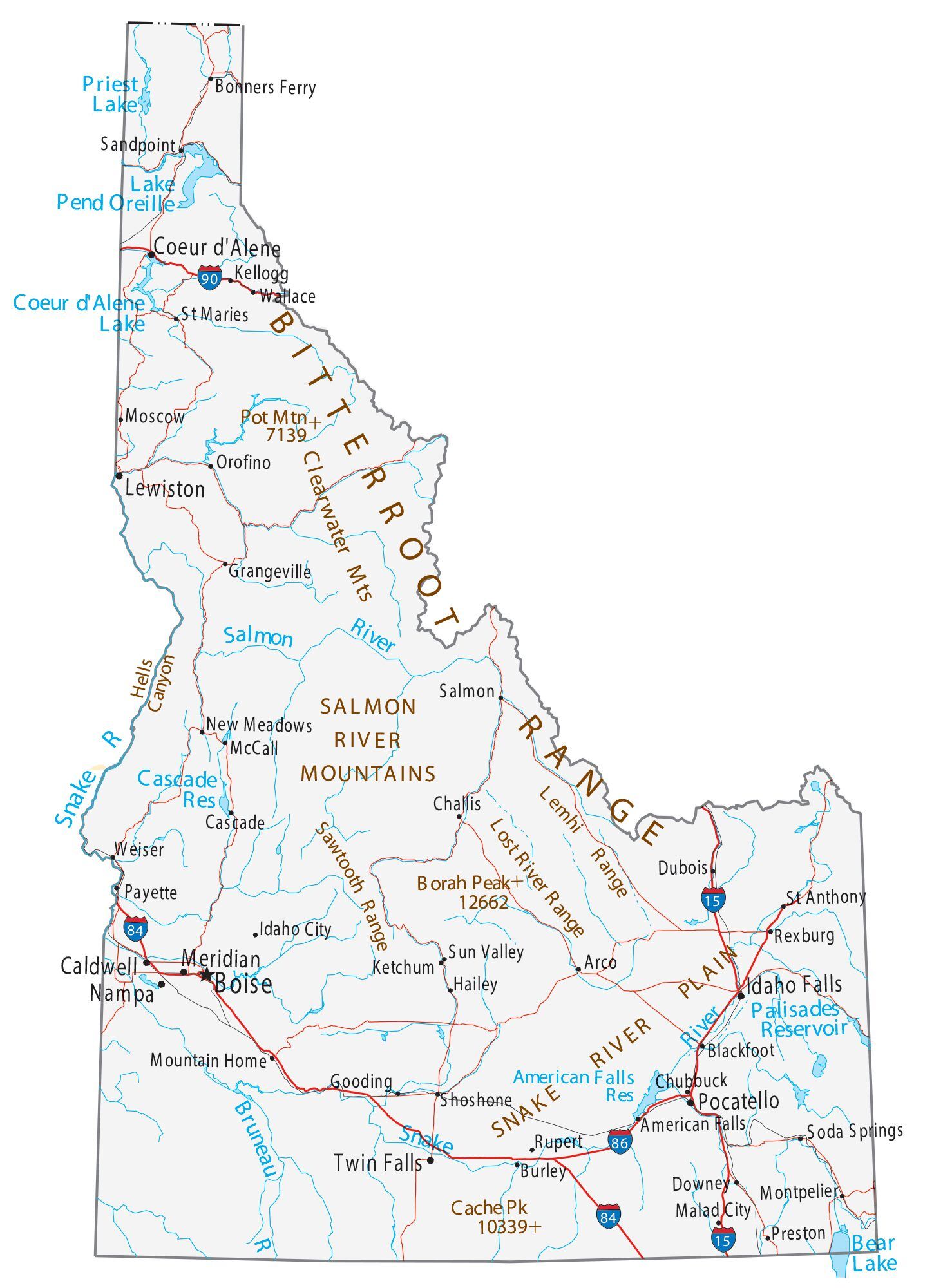If you’re planning to install or modify a septic system, obtaining the correct Idaho septic system permit is essential for compliance with state and local regulations. These permits ensure that systems are designed, installed, and maintained properly, safeguarding both public health and the environment. Understanding the steps involved in securing a septic permit is crucial for homeowners and contractors alike to avoid fines or delays during construction. This guide will walk you through the necessary process to get your Idaho septic system permit.
Table of Content
- Why a Septic System Permit is Required in Idaho
- The Idaho Septic Permit Process
- Costs and Fees for Septic System Permits
- Tank Sizing Requirements in Idaho
- Common Septic System Problems and How to Avoid Them
- Local Resources
- Contact
- Supportive Resources
- FAQs About Idaho Septic Systems
In Idaho, septic systems are subject to strict regulations designed to protect public health and the environment. These regulations are enforced by the Idaho Department of Environmental Quality (DEQ) and local public health districts. Septic system requirements may vary slightly depending on the county, but the general guidelines remain consistent throughout the state.
Article- Best Products for Odor Elimination: Proven Solutions for Septic Systems
Why a Septic System Permit is Required in Idaho
A septic system permit is mandatory for all new installations, modifications, or repairs of septic systems. This ensures that the system complies with Idaho’s onsite wastewater treatment rules and that it will function safely and efficiently. Without proper permits, homeowners risk facing fines, delays, or even having to undo any non-compliant work.
The Idaho Septic Permit Process
Step 1: Submit Your Application
To begin the process, you must submit a completed septic system application to your local public health district. The application will require details about your property, the intended system, and the expected water usage. Be prepared to provide:
- A site map outlining your property layout
- System specifications, including the type and size of the septic system
- Soil test results, which are necessary for the evaluation of your property’s suitability for a septic system
Step 2: Site Evaluation and Soil Testing
A site evaluation is an essential part of the permitting process. A certified inspector or engineer will visit the property to assess various factors that will determine the type of septic system needed. Key aspects of the site evaluation include:
- Soil analysis to determine if your land can properly absorb wastewater.
- Groundwater levels, to ensure the system won’t contaminate local water supplies.
- Topography and property size, to ensure the system can be installed within required setbacks from property lines, wells, and water sources.
This evaluation is crucial for determining whether a conventional septic system is appropriate or if an alternative system is required.
Step 3: Permit Approval and Issuance
Once the site evaluation and application are complete, your local health district will review the findings and approve or deny the permit. If your system design meets all the regulations, the district will issue the permit, which must be obtained before construction begins.
Step 4: Installation and Inspections
Once the permit is issued, you can begin the installation process. However, the work must be performed by a licensed septic installer who has completed all necessary training and certifications. After installation, the septic system must undergo an inspection to ensure it meets all health and safety standards.
Article – Vacuum Septic Systems: Applications in Residential and Commercial Properties
Costs and Fees for Septic System Permits
The costs associated with septic system permits in Idaho can vary depending on the complexity of the system and the specific district. For example:
- Application Fees: Fees generally range from $100 to $400.
- Site Evaluation Fees: Typically between $200 and $600, depending on the site size and location.
- Inspection Fees: Additional costs may be required for inspections once the system is installed.
Tank Sizing Requirements in Idaho
Idaho state law requires that septic tanks be sized appropriately for the number of bedrooms in a home. Below are general guidelines:
- 1-2 Bedrooms: Minimum 900-gallon tank
- 3 Bedrooms: Minimum 1,000-gallon tank
- 4 Bedrooms or More: 1,200 gallons or larger
If your home has more than four bedrooms, you may need to adjust the tank size accordingly. Additionally, the size and design of the drain field will be determined based on the type of soil and the land’s ability to absorb wastewater.
Common Septic System Problems and How to Avoid Them
To avoid costly repairs and system failures, it’s crucial to maintain your septic system properly. Common problems include:
- Clogged drains or pipes: Caused by improper waste disposal (e.g., grease, non-biodegradable items).
- Leaking or failing septic tanks: Often due to overflows, lack of regular pumping, or improper system design.
- Soil saturation: If the soil becomes saturated, the system may not properly absorb wastewater, leading to groundwater contamination.
Regular Maintenance
Regular pumping and inspection of your septic system are essential for ensuring its longevity. Typically, septic tanks should be pumped every 3 to 5 years, depending on usage.
Local Resources
State Agencies
For official guidance, the Idaho Department of Environmental Quality is the primary resource. Local health districts also play a critical role in managing septic system regulations and issuing permits. Visit their websites for application forms and detailed instructions.
- Idaho DEQ: Idaho DEQ Website
- Health Districts: Check your county’s health district website for localized requirements.
Certified Septic Professionals
Hiring a licensed professional ensures your septic system complies with Idaho health department guidelines. Look for state-certified contractors through the Idaho DEQ or local health departments.
Provide tips on how to verify a contractor’s credentials, such as checking licenses and reviews. Discuss the importance of comparing quotes from multiple providers to find the best value.
Contact
IDEQ State Office
1410 N. Hilton
Boise, ID 83706
Phone: (208) 373-0502
Fax: (208) 373-0417
Supportive Resources
Government Resources
The Idaho DEQ provides detailed handbooks on wastewater management laws and septic tank rules. These guides are essential for homeowners and contractors seeking clarity on regulations.
Include a brief mention of educational workshops or webinars provided by the Idaho DEQ or local health districts. Highlight how these resources can help homeowners understand septic system requirements.
After discussing downloadable guides, it’s helpful to mention the educational workshops and webinars offered by the Idaho Department of Environmental Quality (DEQ) and local health districts. These resources aim to educate homeowners about the complexities of septic system requirements, installation guidelines, and maintenance best practices.
The Idaho DEQ organizes various webinars and workshops that cover wastewater treatment processes, system microbiology, and troubleshooting septic system issues. These workshops, often available both online and in-person, provide crucial insights into maintaining a healthy and compliant septic system. Topics range from wastewater management basics to controlling potential environmental hazards caused by improper septic installations. For instance, the DEQ’s online events, such as webinars on wastewater identification and control, offer participants practical knowledge to maintain system efficiency Idaho DEQ.
By participating in these educational opportunities, homeowners can better understand the necessary compliance measures and reduce risks of costly violations. Attending these workshops ensures that property owners stay informed about Idaho wastewater management laws and can confidently adhere to regulations while protecting the environment Idaho DEQ.
You can find more details about these training sessions and register through the Idaho DEQ’s official training calendar here.
Conclusion
In Idaho, following the proper steps for septic system permits is vital for homeowners, contractors, and property developers to ensure environmental safety and regulatory compliance. If you’re planning any work involving septic systems, always work with a licensed professional and check with your local health district for the most accurate and up-to-date regulations.
FAQs About Idaho Septic Systems
Do I need a permit to install a septic system in Idaho?
Yes, you need a permit to install a septic system in Idaho. The Idaho Department of Environmental Quality (DEQ) and local health districts regulate the permitting process. It’s essential to get approval from your local public health district before any system installation Idaho DEQ Eastern Idaho Public Health.
How much does an Idaho septic permit cost?
The cost of a septic permit in Idaho can vary depending on the type of system and your location. Fees may include charges for pre-development meetings, evaluation services, and installation permits. For example, fees for pre-development evaluations by Southwest District Health can cost around $800 SW District Health.
How often should I pump my septic tank in Idaho?
The recommended frequency for pumping a septic tank in Idaho is every 3 to 5 years. This depends on factors such as the size of the tank, household usage, and the number of occupants Idaho DEQ.
Are there any state-specific guidelines for septic tank size and placement in Idaho?
Yes, Idaho has specific guidelines for tank sizing and drain field placement. For a standard household with three to four occupants, a 1,000-gallon tank is often sufficient. However, local public health districts may have stricter requirements based on soil type, lot size, and ground water conditions SW District Health.
What are the wastewater disposal regulations in Idaho?
Wastewater disposal in Idaho must comply with the DEQ’s guidelines. Wastewater typically flows through a septic tank, where solids settle and bacteria break down organic material. It then moves to a drain field, where percolation through the soil ensures proper wastewater treatment Idaho DEQ.
Can I legally install a septic system without proper certification?
No, you must obtain a registration permit to install septic systems in Idaho. Installers can be categorized as basic or complex, with fees and bonding requirements differing based on the permit level. Basic registration permits cover standard installations, while complex registration permits allow for more advanced systems Eastern Idaho Public Health.
Are there any environmental protections unique to Idaho’s septic system regulations?
Yes, Idaho’s environmental protections focus on maintaining soil health and preventing groundwater contamination. Regulations prohibit the disposal of hazardous chemicals, restrict the types of materials that can be flushed, and encourage proper drainfield maintenance to protect nearby water sources SW District Health.
What should I do to maintain a functioning septic system in Idaho?
Regular maintenance is crucial to prolong the life of your septic system. Homeowners should follow these steps:
- Inspect your system every 3 years.
- Pump the septic tank every 3 to 5 years.
- Avoid driving or parking vehicles on drain fields to prevent damage.
- Limit garbage disposal use to reduce sludge buildupIdaho DEQ.
Are there educational resources about septic systems available in Idaho?
Yes, the Idaho Department of Environmental Quality and local health districts offer workshops and webinars to educate homeowners about septic system requirements and best practices. These resources are aimed at helping residents understand maintenance schedules, permit applications, and system compliance SW District Health.
Where can I find professional septic service providers in Idaho?
For reliable septic services, homeowners should contact local public health districts or DEQ-approved service providers. Websites such as the DEQ’s Septic and Septage page and regional health department sites list certified septic service companies Idaho DEQ.
For more comprehensive information, visit the DEQ’s Septic and Septage page: DEQ Septic and Septage SW District Health.
DIY Repairs Are Always Cheaper
Septic Regulations in Rural Areas: Essential Guide for Rural Property Owners
The Role of Perforated Pipes in Drain Fields
What Happens During a Pumping Service?
Septic Tanks vs. Sewer Systems | Choosing the Right Option
Directory | Virginia Septic Service Providers | Part 2







